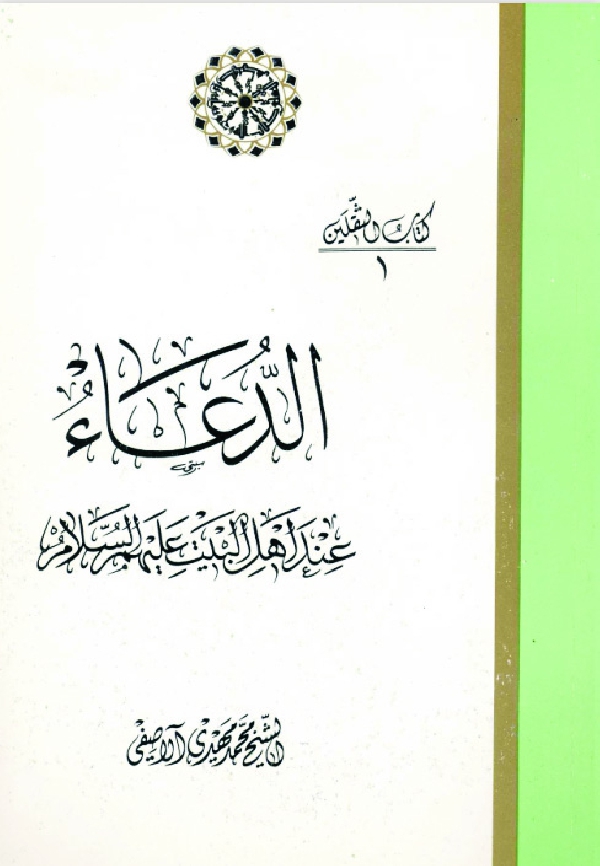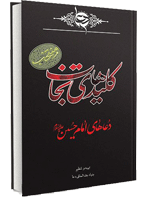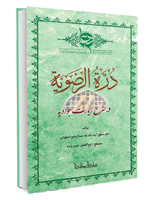- Prophet Muhammad (P.B.U.H&HF): Whenever one of you is needy and brings that to other people, he will not be satisfied. and Whenever someone is needy and brings that to Lord, he shall give him what he wants. sooner or later.
- Imam Sadiq (As.): Whenever you had tenderness in your heart, Pray. because your heart doesn't get tender unless it's pure.
- I told to Imam Baqir (A.S): “What is the meaning of “truly, Ibrahim was awwah and patient”? He replied: “Awwah means (the one who is) praying (to) and wailing (for God) a lot.””
- “Two people, who have acted alike, enter the heaven, but one of them sees the other one in a higher place. Then, he says: O’ Lord! How come has he a superior place in comparison to me while we acted alike? God the Almighty replies: “because he asked Me (whatever he needed) and you did not do that”.
- “The most knowledgeable person to God is the one who asks more from Him”
- “Whoever prays a lot, the angels say: This voice is familiar (to us) and this is the supplication which is accepted and this is the need which is provided”
-
The Holy Prophet (peace be upon him and his Household):
-
وَ لَوْ عَرَفْتُمُ اللَّهَ حَقَّ مَعْرِفَتِهِ لَزَالَتِ الْجِبَالُ بِدُعَائِكُم
If you knew god the way you should’ve known, Mountains definitely will be moved by your supplications. - Crying out of fear of God is the key to his mercy, it’s a sign for his acceptance and it’s a door to answering [supplications]
- Pray to God and believe in his answeres. But understand that God won't accept prays from an unwitting oblivious heart.
Supplication In the Eyes of the Ahl al-Bayt (As)
Introduction For " Supplication In the Eyes of the Ahl al-Bayt (As)"
Title: Supplication In the Eyes of the Ahl al-Bayt (As)
Writer: Muhammad Mahdi Al-Asifi
Translator: Jabir Chandoo
Publisher: Ahlul Bayt World Assembly

Importance of praying:
We must know that the relationship between god and his servants is a two side road. And the road for us to go to him is “Praying”.
All supplications and duas in Islam are for our requests and suffering. We talk to god about the things that hurts us, our sins, our good deeds, things we want and things we hate. We literally are opening up to him like a friend. And that is why praying is truly significant for every Muslim and every human.
The other thing that we need to know is that our imams in shia told us lots of things about our duas. They showed us the way to talk to god and make our requests to him. Things to make our prayers to be answered.
In this book begins introducing the Definition of Prayer, and its importance. The author explains how prayers are accepted, and what acceptance of prayer can lead to in a believer's life. Beyond the literal recitation of the prayer, in this text we can find the etiquettes of prayer, and other aspects we must take into consideration.
Contents:
- Preface
- Definition of Prayer
• The Meaning of Prayer
• The Value of Prayer
• Four Ways of Reaching Allah in the Qur’an
• Prayer: the Essence of Worship
• Disregard for Prayer is to Turn Away from Allah
• Allah Yearns for the Supplication of His Servant
• Asking one’s Needs from Other than Allah - Acceptance of the Prayer
• Prayer is Surrounded by Success and Acceptance
• Two Benefits of the Acceptance of Prayer
• The Relation of the Response to Prayer
• Prayer: the Key of Mercy
• Action and Prayer: the Two Keys of Allah’s Mercy
• The Relation between Prayer and Action
• The Relationship between Prayer and the Response
• The Need before its Perception and Presentation before Allah
• The Need after its Perception and Request
• The Three Laws Regarding the Relation between Prayer and the Response
• Signs of the Realization of One’s Neediness to Allah
• Obstacles of the First Kind
• Obstacles of the Second Kind
• Delay and Substitution in the Acceptance of a Prayer
• Transformation of a Prayer into Deed
• The Relation between Prayer and the Response
• The Three Stations of Mercy - Etiquettes and Requisites of Supplication
• 1. Recognition of Allah
• 2. Entertaining a Good Opinion of Allah
• 4. Entering from the Doors Ordained by Allah
• 5. Turning of the Heart to Allah
• 6. Humiliation and Softening the Heart
• 7. Continuity in Praying in Adversity and Ease
• 8. Fulfilling the Covenant of Allah
• 9. Simultaneity of Prayer with Efforts
• 10. Supplication within the Framework of the Divine Norms
• 11. Abstinence from Sins
• 12. Congregation for Supplication and Asking the Believers to say Amin
• 13. Consistency in Praying to Allah
• 14. Preparing the Self for Prayer
• 15. Calling Allah by His Beautiful Names
• 16. Presenting the Needs before Allah
• 17. Persistence in Praying
• 18. Prayer for Others and from Others
• 19. Supplication at the Time of the Descent of Mercy
• 20. Praying in the Middle of the Night
• 21. Wiping the Face and Head after Supplication - Obstacles and Hindrances
• The Role of Sins in Veiling Man from Allah
• The Twofold Role of the Soul in Receiving and Giving
• The Role of the Soul in Giving Out Guidance
• Factors which Cause the Obscurity of the Heart
• Sins Invert the Heart
• Sins Deprive Man of the Sweetness of Remembrance
• Sins that Withhold Prayer
• Obstacles and Factors of the Ascension of Deeds
• Obstacles of the Ascension of Deeds
• Factors of the Ascension of Deeds - The Means to be Employed when Praying to Allah
• Pleading with the Holy Prophet (S) and the Ahl al-Bayt (‘a)
• Means of Recourse to Allah in the Supplication of Kumayl
• General Frame of the Supplication of Kumayl
• Structure of the Supplication of Kumayl
• Four Means of Recourse in the Supplication of Kumayl - Lawful and Unlawful Requests
• A) Things we should pray for to Allah
o Blessings on Muhammad (S) and His Progeny (‘a)
o Praying for the Believers
The Three Forms of Prayer in the Qur’an
The Prayer of a Person for Himself
The Prayer of a Person for Others
The Prayer of All for All
An Analysis and Explanation of the Third Form of Prayer
o Praying for Particular Believers
Praying for the Believers in their Absence
Praying for Forty Believers
Giving Preference to Others in Prayer
Praying for the Parents
Man’s Prayer for Himself
Generalization in Prayer
Great Needs Should not Stop us from Asking for Smaller Things
Praying for the Great Bounties
Reliance on the Divine Planning
Pleading for the Face of Allah from Allah
• B) Things We should not Pray for to Allah
o 1. Petition in Contrary to the Norms of Allah in the Universe and Life
o 2. Praying for Illegal Things
o 3. Wishing the Eradication of Blessings from Others
o 4. Petition Against the Advantage of the Supplicant
o 5. Seeking Refuge from Test
o 6. Not to Invoke Evil Upon the Believers
Loving Hearts Cause Allah’s Mercy
Harbouring Deceit for the Believers Causes the Wrath of Allah
Harbouring Evil for the Believers Witholds the Deed from Allah
Allah Never Looks at Those Who Hate the Believers - Divine Love in the Supplications of the Ahl al-Bayt (‘a)
• The Relation with Allah
• Love of Allah
• Belief and Love
• The Pleasure of Love
• Love Compensates the Deficiency of the Deed
• Love of Allah Protects Man from the Punishment
• Levels of Love
• The State of Yearning and Intimacy in Love
• Another Illustration
• Inspirations and Outflows of the Heart
• The Principle of Choice
• A Return to the Whispered Prayer of Al-muridin
• The Peak and Trough of the Prayer
• The Three Means
• The First Means: Neediness
• The Second Means: Supplication
• The Third Means: Love
• Another Illustration of the State of Yearning to Allah
• Sincerity in Love of Allah
• The Jealousy of Allah for His Servant
• Love 'of' Allah and 'for' Allah
• The First Source of Love - Sources of Supplications in the Heritage of the Ahl al-Bayt (‘a)
• The Importance given by the Companions of the A’immah to the Recording of the Ahadith
• The Four Hundred Treatises of Hadith
• The Burning of the Heritage of the Ahl al-Bayt (‘a) at the Hands of Tughril Beg
• Immunity of Part of the Heritage of the Ahl al-Bayt (‘a) from being Destroyed
• Immunity of Part of the Source Books on Supplication from being Lost
• Supplications handed down to Us Intact through Misbah al-Mutahajjid
• Sources of Supplication that reached Ibn Tawus
• One Thousand Five Hundred Sources of Hadith and Du‘a’ with Ibn Tawus
• Fifteen Books of Sayyid Ibn Tawus on Supplication and Adhkar
• Later Source Books of Supplication - Supplication and the Divine Decree and Destiny
• The Law of Causality in History and the Universe
• The Relation between the Divine Will and the Law of Causality
• The Reign of the Divine Will over the Law of Causality by Itself
• The Law of Mediate Causation
• The Law of Facilitation
• The Absolute Reign of Allah’s Will in the Universe
• The Relation between the Will of Allah and the Law of Causality
• Change in Allah’s Decree in Creation
• Obliteration and Affirmation
• The Effect of Belief in Bada’
• Supplication and Bada’ - Visitation: Its Monotheistic and Political Dimensions
• The Family of Monotheism in History
• The Inter-connectedness and Reunion between Generations of this Family
• The Visitation
• A Study of the Concepts which have Appeared in the Texts of the Ziyarat
• 1. Testimony
o a. Testimony to the Messengership of the Prophet (S) in the First Stage of the Conflict
o b. Testimony for the Imam (‘a) in the Second Stage of the Conflict
o c. Testimony on the Second Part of the Dispute on the Interpretation
o d. Testimony for the Inheritance
The Witness and the Witnessed for
• 2. The Stand
o Friendship and Dissociation
o Pleasure and Anger
o Peace and Submission
o Praying for the Triumph of the Revenge
o Prayer for the Revenge (tha’r)
o Ziyarat within the Framework of Personal






